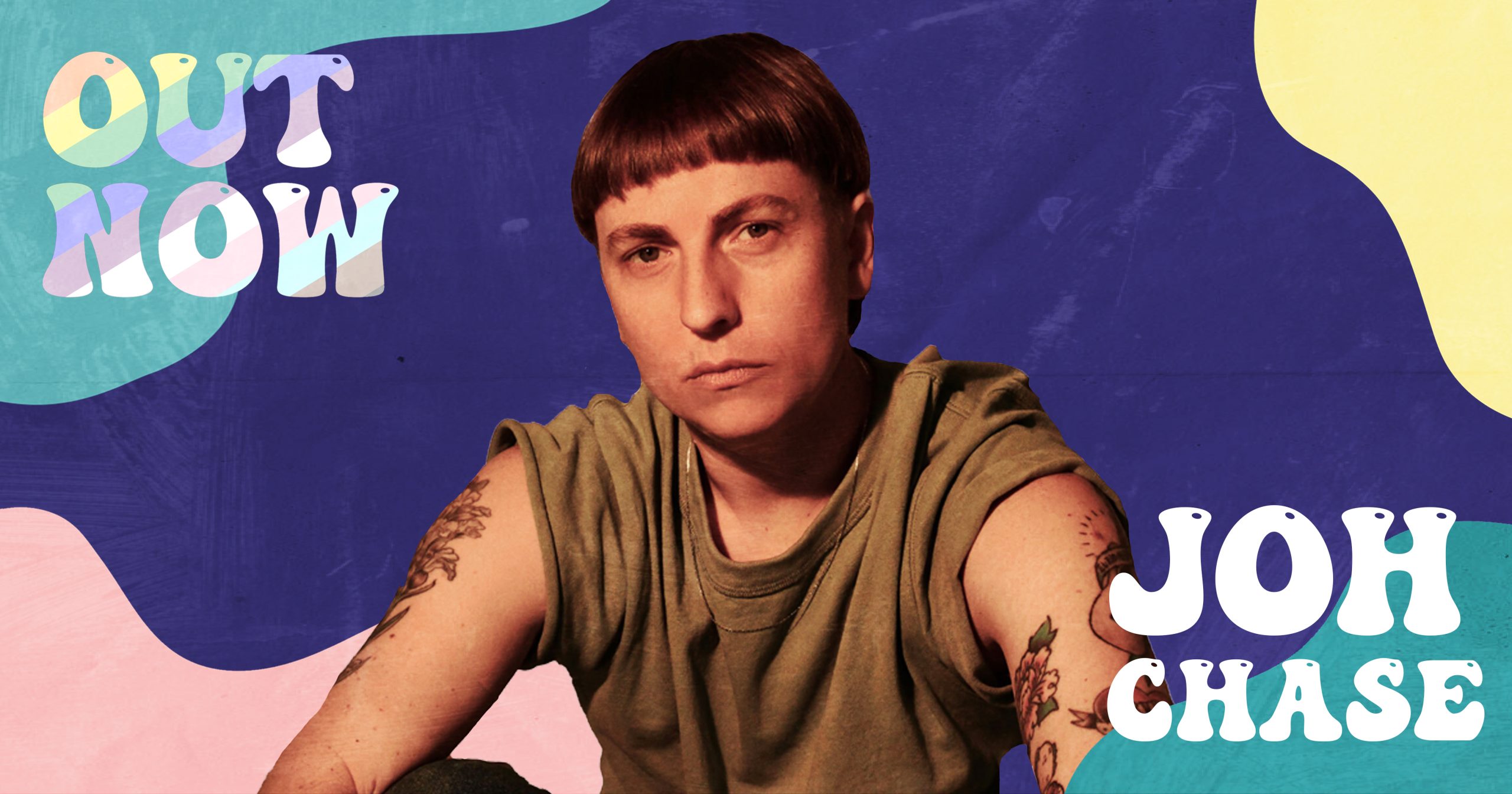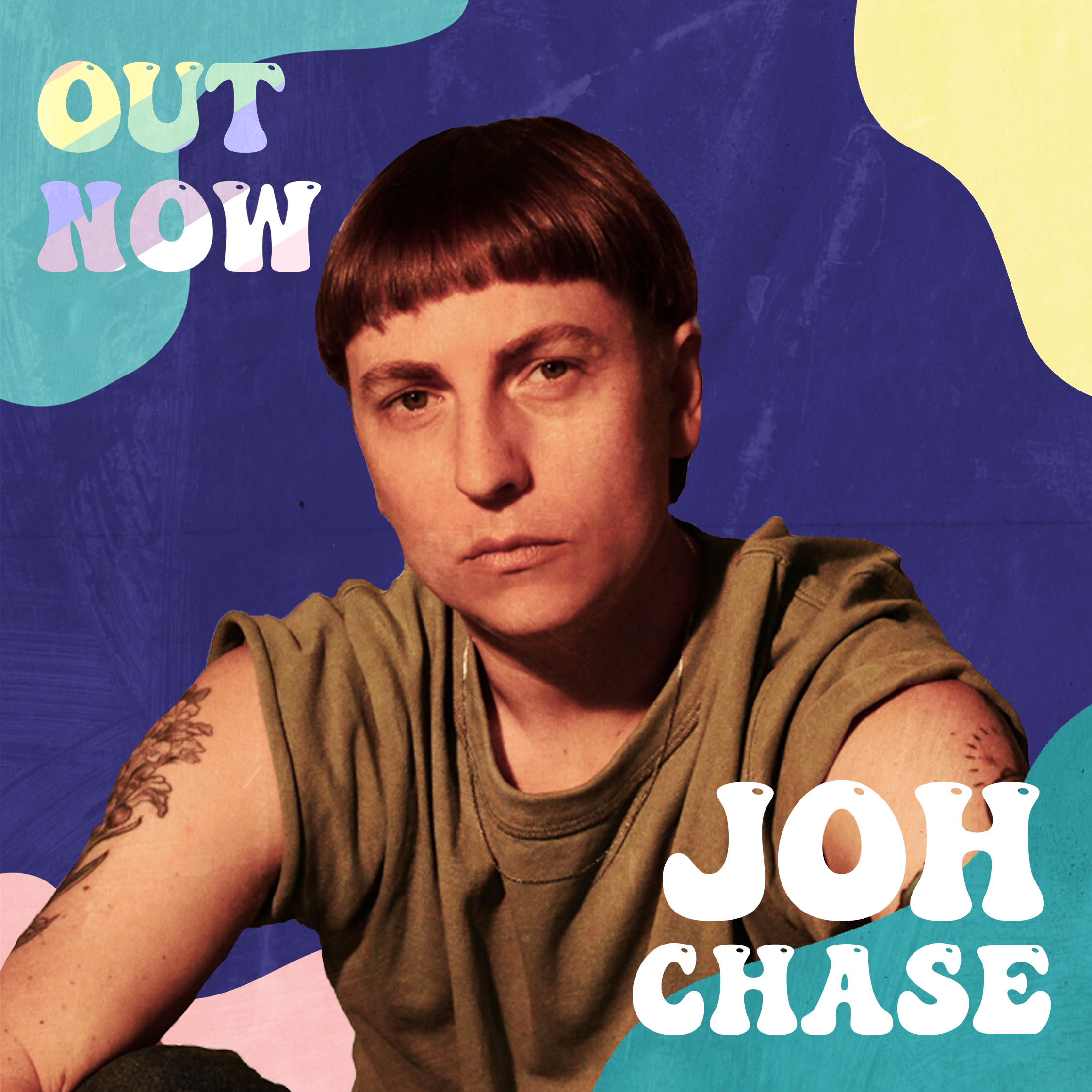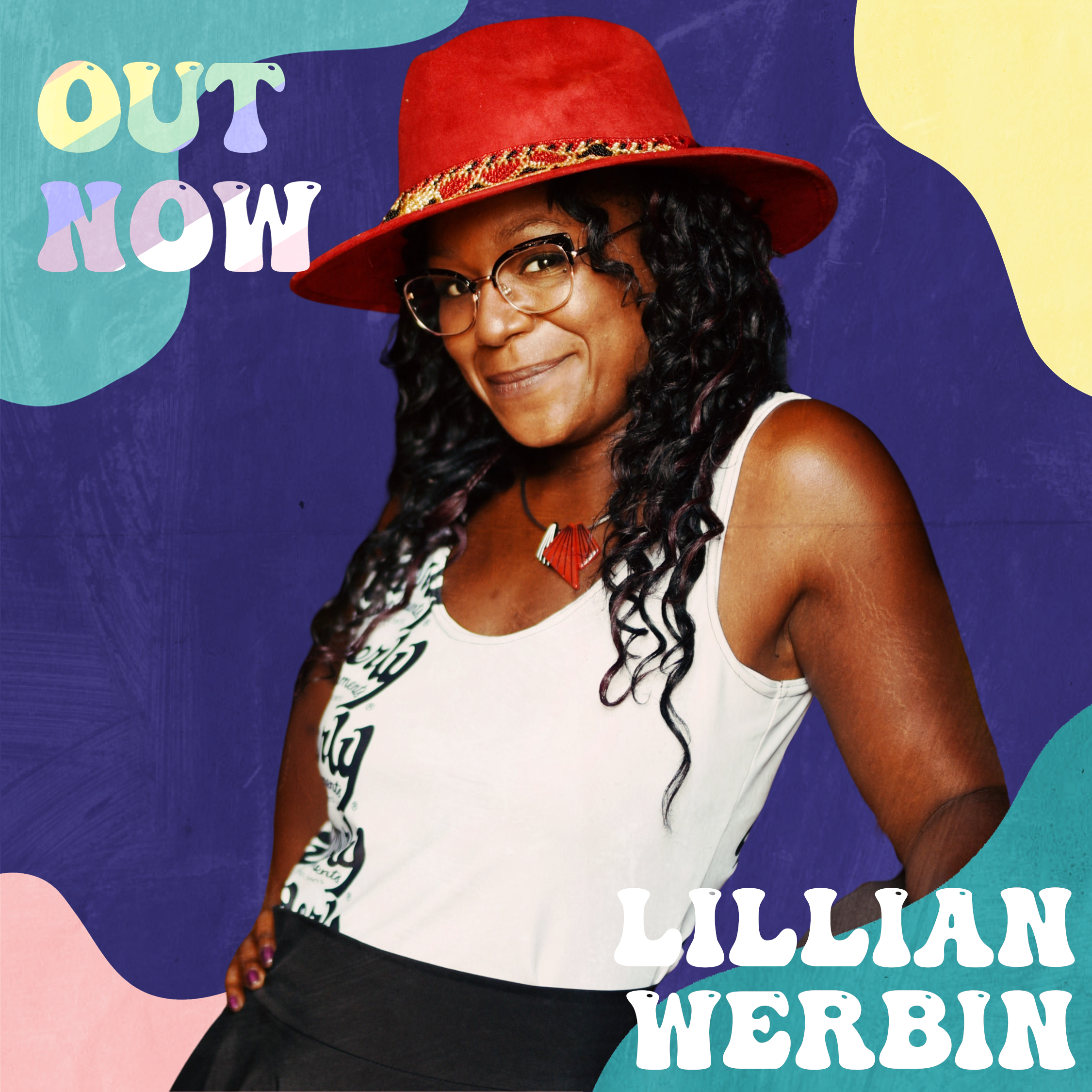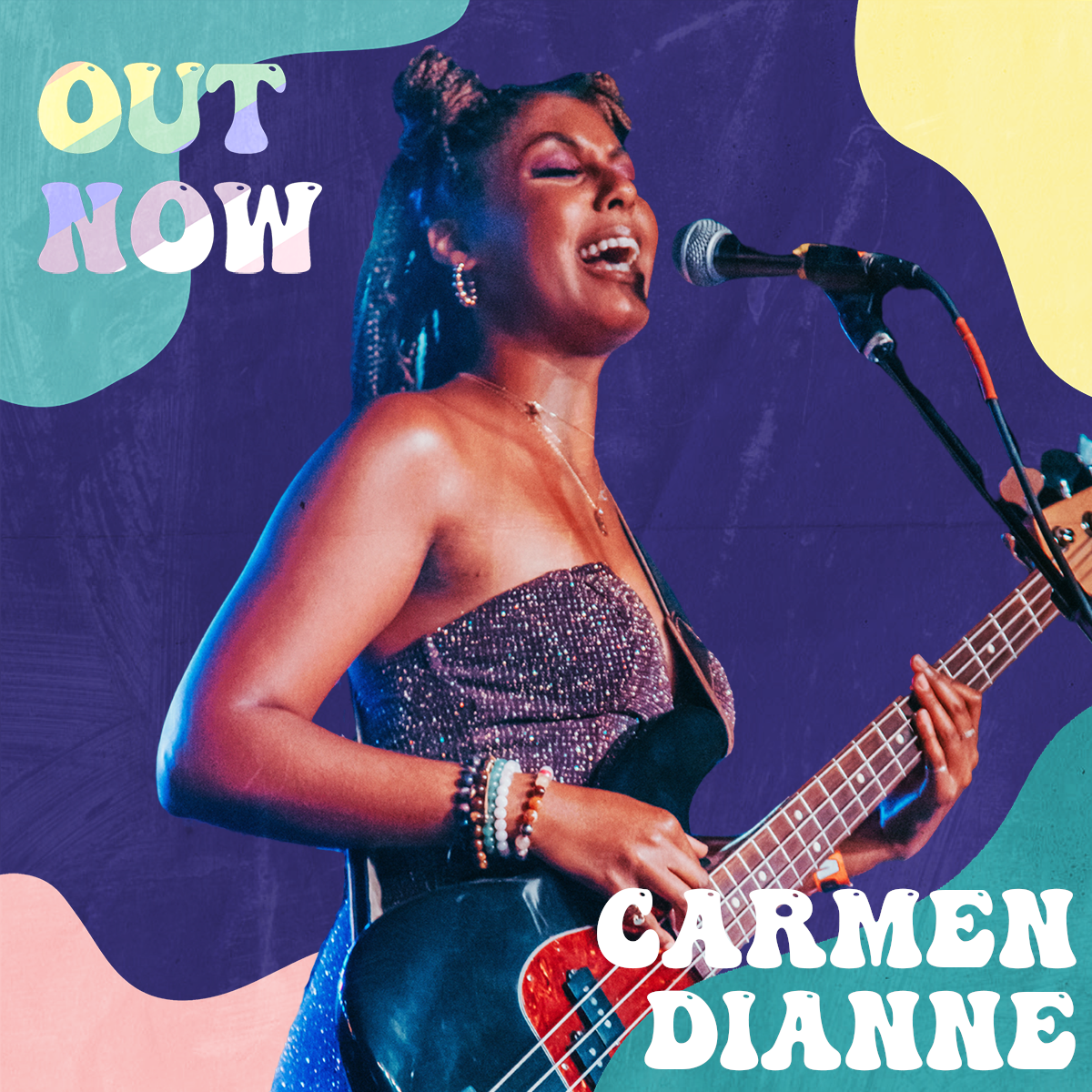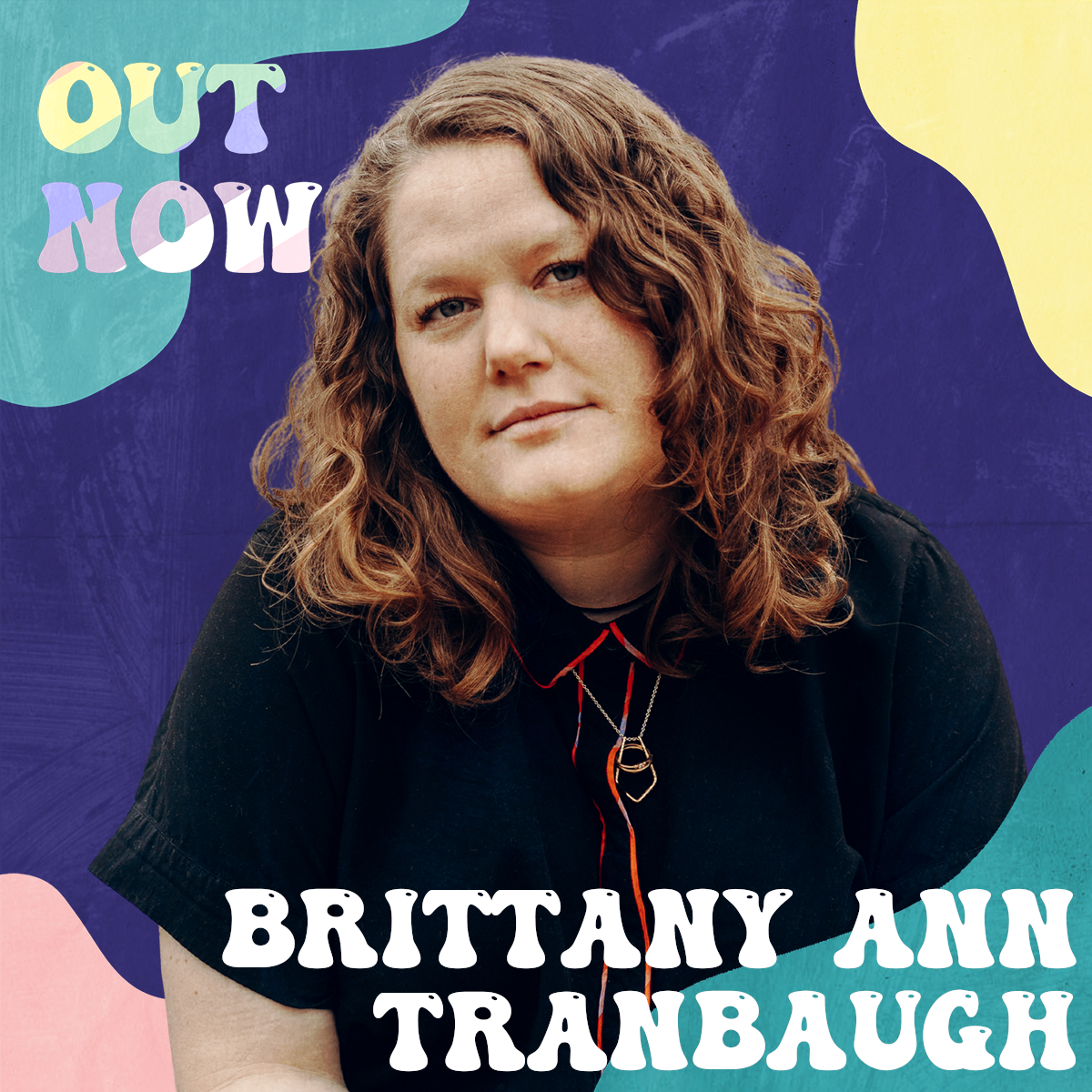This week, we’re excited to feature Joh Chase in Out Now. Joh is an artist from Seattle, Washington now rooted in Los Angeles, California. They’ve spent the past two decades developing their craft as a songwriter and performer and they’ve opened for artists like Noah Gunderson and David Bazan. Joh’s music steps outside the lines of any single genre and blends influences of blues, folk, pop, and indie rock.
Joh Chase’s brand new album, SOLO, was released today. It features diverse sounds, intimate lyrics, and an exploration of love, loss, self-discovery, and independence. Our conversation touches on why they create music, their greatest fear, and their process of self-funding tours and crowdfunding albums.
Why do you create music? What’s more satisfying to you, the process or the outcome?
I create music because I am lucky to have claimed music as something that I do. I just do music as much as humanly possible, because it makes me feel alive and helps me know who I am and how much I love the world and life and others. Both the outcome and the process are satisfying. The payoffs for showing up always feel rewarding, but the long game reward of gaining muscle memory around showing up when it feels like the last thing you wanna do, is its own kind of reward.
Do you create music primarily for yourself or for others?
I’m very “Oliver Sacks” about music. I unabashedly create music for selfish reasons – coping, pleasure, and connection. And then I love playing music for people or hearing the music of others because everyone has a “secret public song space” in their bodies and minds and they want to be there as much as possible.
Your songs cover a wide range of genres with traces of blues, pop, folk, and indie rock influences. How do you navigate genre diversity while maintaining a cohesive sound throughout the album?
I think the genre diversity and how that comes across in the different sounds is a reflection of the kinds of music I used to make and the sounds that have stuck with me throughout the years. Using the baritone saxophone, finding a way to express some soul music as well as some Americana licks amongst folky tunes indie folk/rock sounds are endemic to my musical expression. Over the years people have said, “Oh your voice would sound good singing… country, bluegrass, blues, soul…” and in this record I found a way to fit the genres to my voice, a bit. The surprising Flaming Lips-sounding party that is “Daniel” or the more jammy “Smoother” with its less Western sounding scale, are consequences of me feeling 100% happy with creating and releasing music that genre melds, as opposed to making sure I stay in some sort of shape, genre-wise.
The lead single, “Avalanche,” is both explosive and personal. What is the inspiration and significance of this track?
I honestly cannot remember the exactitude of where or when I wrote “Avalanche.” It was in the same set of songs as “Gone” when I first wrote it, but I can’t remember that session as well as I can remember the writing of “Gone.” The song centers itself around the powerful polarity of belonging and loss. Love is not just the “hot fire sex flame” of pop bangers, but also the unexpected mountain shelf of love that you didn’t know you had until it was gone.
This album, SOLO, reflects your do-it-yourself perspective as an artist. Could you share the challenges and rewards of self-funding tours and crowdfunding projects?
One of my favorite books that I was reading around the time that I decided to do the crowd funding that led to this record is the book Real Artists Don’t Starve. The book inspired me to go back to school while I was making this record. The record business is tough and very uncontrollable, but I will never stop making music. So it’s not a question of “do I want to keep making music”, but rather how and at which costs? I think some artists or bands are in a place where they feel comfortable sharing the financials of their music business with fans and some do not for many valid reasons. I feel comfortable sharing with my fans, I need $x to do this, will you help me make it happen. It’s much more acceptable now to have folks follow your Patreon or Substack or subscriptions than it was, so I feel grateful that there are things like Kickstarter and Patreon etc.
What would a “perfect day” look like for you?
Eating a Berliner from Black Forest Bakery in Los Feliz with my coffee, going home to the studio and making music or playing out with my band.
What’s your ideal vision for your future?
I’m sitting behind some tape machine or TEAC-2A, coming up with my next record and building more beautiful songs. I’m walking my dog and going to queer line dancing and the LA women’s soccer games with my city and then touring and meeting wonderful people and getting to play music for them. Definitely going back to Europe for more shows – I’d really love to do that.
What is your greatest fear?
My dog dying when I’m on tour.
What’s the best advice you’ve ever gotten?
Get pet insurance.
What is your current state of mind?
I’m so deeply excited about playing these new songs for people this year and for people to hear this record. I couldn’t sleep last night after doing my taxes, ’cause I was so buzzed from the band rehearsal.
Who are your favorite LGBTQ+ artists and bands?
Brittany Ann Tranbaugh. Brennan Wedl. Bitch. Melissa Ferrick. Perfume Genius. Hand Habits. Sasami. Rhett Madson. Rachel Mazer. Ryan Cassatta. Brittany Howard. Sinead O’Connor. Jonnie Reinhart. Hurray for the Riff Raff.
For anyone reading this who might not be out of the closet, were there any specific people, musicians, or resources that helped you find yourself as a queer individual?
Willie Nelson’s “He Was A Friend of Mine” – I think struggling to come out of the closet or living in it or the aftermath of coming out revolves around loss of community and friendships. Nelson’s version of this song helps me still deal with some of the sadness around that loss. I was lucky enough to get sober and it was through the 12 step community that I met lovely, strong, vulnerable queers in LA who showed me the beauty and joy of what it’s like to be out and to be sturdy in your own way. I’m also spoiled with LA’s LGBT center – it’s an incredible organization with so many resources and events. Find the queers you want to be when you grow up. And then be the queer you want to be when you grow up.
What does it mean to you to be an LGBTQ+ musician?
I think it means that my music gets to be a safe LGBTQ+ place. That my shows and my music centers the queer experience.
What are your release and touring plans for the next year?
After touring this summer to promote the record on the West Coast, I’ll head east later in the year and jump into some Folk Alliance conferences. No release plans on the radar yet after SOLO.
How do you find a balance between the business and artistic aspects involved in your career as a musician?
I honestly don’t totally know. It’s intuitive and chaotic and intentional and has been part of my personality or my way of life for so long, now, that I don’t know if I can pinpoint one precise center of gravity. I have to protect my creative time, nurture my playfulness in life, let myself ditch friends or ditch overworking or ditch over-cleaning to let those creative moments remind me of who I am. I am lucky to have a manager, a team at Kill Rock Stars and friends who support me and my music. Inside of community, the glaring nature of the music industry is dulled out quite a bit.
Photo Credit: Shervin Lainez

